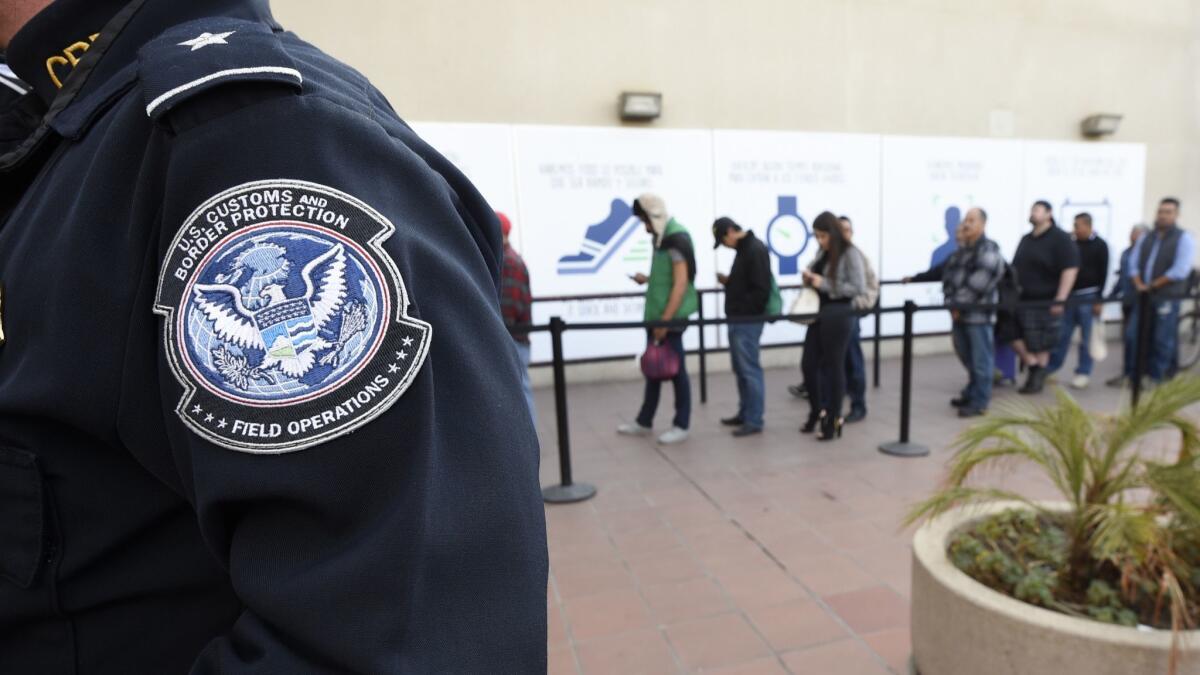Editorial: Trump’s anti-immigration ‘public charge’ proposal solves a problem that doesn’t exist

- Share via
In an effort to make it more difficult for legal immigrants to live and work in the United States, the Trump administration proposed new rules over the weekend giving officials the right to withhold green cards from applicants who take advantage of a wide range of government aid programs to which they are legally entitled, including food assistance and housing vouchers.
And for prospective immigrants who apply for visas from overseas, government officials would have broad power to reject people whom they believe might someday in the future tap government programs for financial support. That change, experts say, will reduce the overall flow of immigration and skew it toward people seeking to emigrate from more advanced countries.
These are unnecessarily strict and hard-hearted rules aimed at solving a problem that social scientists say doesn’t exist.
The government has for decades rejected visa requests and green card applications from people who are likely to become “public charges,” defined since 1999 as “primarily dependent on the government for subsistence.” That has usually been interpreted, reasonably, to mean people who rely on cash support or people who would require institutional care. Furthermore, the Clinton-era welfare reforms already put major social service programs out of reach for most legal immigrants until they’ve been here for five years; undocumented immigrants are barred from nearly all public support.
Enter the Fray: First takes on the news of the minute from L.A. Times Opinion »
Now, however, the administration wants to consider a legal immigrant a “public charge” if he or she receives government benefits exceeding $1,821 (15% of the federal poverty guidelines) over 12 months. The net effect, advocates for immigrants argue, will be a self-purging of people living and working here legally from the rolls of Medicaid, Supplemental Nutrition Assistance Program (formerly food stamps) and housing support, among other programs.
The government estimates that the new regulations would negatively affect 382,000 people, but advocates say that is likely an undercount. And the rules would keep people from coming to the country who economists say are vital for the nation’s future economic growth. President Trump’s xenophobic view of the world stands in sharp contradiction not only to American values, but to the nation’s history. We are a country of immigrants or descendants of immigrants, and as a maturing society we will rely more and more on immigration for economic growth. Research shows that even those who start out in low-wage jobs, and thus are likely to get some financial help from the government, often, over time, learn or improve skills that move them into higher income brackets and help the overall economy.
These proposed regulations would force immigrants in low-paying jobs to reject help to which they are legally entitled — and which could speed them along the path to financial security — or to jeopardize their ability to remain here. That’s a cruel Solomon’s choice.
Follow the Opinion section on Twitter @latimesopinion or Facebook
More to Read
A cure for the common opinion
Get thought-provoking perspectives with our weekly newsletter.
You may occasionally receive promotional content from the Los Angeles Times.










